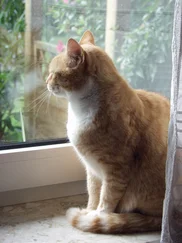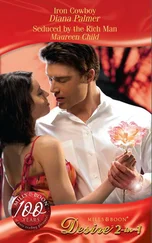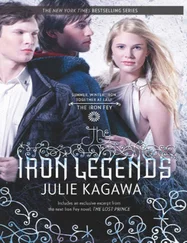And after that, after the dying? Never fear, I will not haunt you. There will be no need to close the windows and seal the chimney to keep the white moth from flapping in during the night and settling on your brow or on the brow of one of the children. The moth is simply what will brush your cheek ever so lightly as you put down the last page of this letter, before it flutters off on its next journey. It is not my soul that will remain with you but the spirit of my soul, the breath, the stirring of the air about these words, the faintest of turbulence traced in the air by the ghostly passage of my pen over the paper your fingers now hold.
Letting go of myself, letting go of you, letting go of a house still alive with memories: a hard task, but I am learning. The music too. But the music I will take with me, that at least, for it is wound into my soul. The ariosos from the Matthew Passion, wound in and knotted a thousand times, so that no one, nothing can undo them.
If Vercueil does not send these writings on, you will never read them. You will, never even know they existed. A certain, body of truth will never take on flesh: my truth: how I lived in these times, in this place.
What is the wager, then, that I am making with Vercueil, on Vercueil?
It is a wager on trust. So little to ask, to take a package to the post office and pass it over the counter. So little that it is almost nothing. Between taking the package and not taking it the difference is as light as a feather. If there is the slightest breath of trust, obligation, piety left behind when I am gone, he will surely take it.
And if not?
If not, there is no trust and we deserve no better, all of us, than to fall into a hole and vanish.
Because I cannot trust Vercueil I must trust him.
I am trying to keep a soul alive in times not hospitable to the soul.
Easy to give alms to the orphaned, the destitute, the hungry. Harder to give alms to the bitter-hearted (I think of Florence). But the alms I give Vercueil are hardest of all.
What I give he does not forgive me for giving. No charity in him, no forgiveness. (Charity? says Vercueil. Forgiveness?) Without his forgiveness I give without charity, serve without love. Rain falling on barren soil.
When I was younger I might have given myself to him bodily. That is the sort of thing one does, one did, however mistakenly. Now I put my life in his hands instead. This is my life, these words, these tracings of the movements of crabbed digits over the page. These words, as you read them, if you read them, enter you and draw breath again. They are, if you like, my way of living on. Once upon a time you lived in me as once upon a time I lived in my mother; as she still lives in me, as I grow towards her, may I live in you.
I give my life to Vercueil to carry over. I trust Vercueil because I do not trust Vercueil. I love him because I do not love him. Because he is the weak reed I lean upon him.
I may seem to understand what I say, but, believe me, I do not. From the beginning, when I found him behind the garage in his cardboard house, sleeping, waiting, I have understood nothing. I am feeling my way along a, passage that grows darker all the time. I am feeling my way toward you; with each word I feel my way.
Days ago I caught a cold, which has now settled on my chest and turned, into a dry, hammering cough that goes on for minutes at a stretch and leaves me panting, exhausted.
As long as the burden is a burden of pain alone I bear it by holding it at a distance. It is not I who am in pain, I say to myself: the one in pain is someone else, some body else who shares this bed with, me. So, by a trick, I hold it off, keep it elsewhere. And when the trick will not work, when the pain insists on owning me, I bear it anyhow.
(As the waves rise I have no doubt my tricks will be swept away like the dikes of Zeeland.)
But now, during these spasms of coughing, I cannot keep any distance from myself. There is no mind, there is no body, there is just I, a creature thrashing about, struggling for air, drowning. Terror, and the ignominy of terror! Another vale to be passed through on the way to death. How can this be happening to me? I think at the height of the coughing: Is it fair? The ignominy of naivete. Even a dog with a broken back breathing its last at the roadside would not think, But is this fair?
Living, said Marcus Aurelius, calls for the art of the wrestler, not the dancer. 'Staying on your feet is all; there is no need for pretty steps.
Yesterday, with, the pantry bare, I had to go shopping. Trudging home with my bags, I had a bad spell. Three passing schoolboys stopped to stare at the old woman leaning against a lamp-post with her groceries spilled around her feet. In between the coughing I tried to wave them away. What I looked like I cannot imagine. A woman in a car slowed down. 'Are you all right?' she called. 'I have been shopping,' I panted. 'What?' she said, frowning, straining to hear. 'Nothing!' I gasped. She drove off.
How ugly we are growing, from being unable to think well of ourselves! Even the beauty queens look irritable. Ugliness: what is it but the soul showing through the flesh?
Then last night the worst happened. Into the confusion of my drugged, unsavoury slumber penetrated the sound of barking. On and on it went, steady, relentless, mechanical. Why did Vercueil not put a stop to it?
I did not trust myself on the stairs. In bathrobe and slippers I went out on to the balcony. It was cold, a light rain was falling. 'Mr Vercueil!' I croaked – 'What is the dog barking about? Mr Vercueil!'
The barking stopped, then started again. Vercueil did not appear.
I went back to bed and lay there unable to sleep, the barking like hammering in my ears.
This is how old women fall and break their hips, I warned myself: this is how the trap is laid, and this is how they are caught.
Holding to the banister with both hands I crept downstairs.
There was someone in the kitchen and it was not: Vercueil. Whoever it was did not try to hide. My God, I thought: Bheki! A chill ran through me.
In the eerie light cast by the open refrigerator he confronted me, his forehead with the bullet wound covered by a white bandage.
'What do you want?' I whispered. 'Do you want food?'
He spoke: 'Where is Bheki?'
The voice was lower, thicker than Bheki's. Who could it be then? Befuddled, I searched for a name.
He closed the refrigerator door. Now we were in darkness. 'Mr Vercueil!' I croaked. The dog barked without let-up. 'The neighbours will come,' I whispered.
As he passed me his shoulder brushed mine. Flinching, I smelled him and knew who he was.
He reached the door. The barking grew frantic.
' Florence isn't here any more,' I said. I turned on the light.
He was not wearing his own clothes. Or perhaps it is a fashion. The jacket seemed to belong to a full-grown man and the trousers were too long. One arm of the jacket was empty.
'How is your arm?' I asked.
'I must not move the arm,' he said.
'Come away from the door,' I said.
I opened the door a crack. The dog leapt excitedly. I tapped it on the nose. 'Stop it at once!.' I commanded. It whined softly. 'Where is your master?' It cocked, its ears. I closed the door.
'What do you want here?' I asked the boy.
'Where is Bheki?'
'Bheki is dead. He was killed last week while you were in hospital. He was shot. He died at once. The day after that affair with the bicycle.'
He licked, his lips. There was a cornered, uncertain look about him.
'Do you want something to eat?'
He shook his head. 'Money. I have no money,' he said. 'For the bus.'
'I will give you money. But where do you intend to go?'
'I must go home.'
Читать дальше












